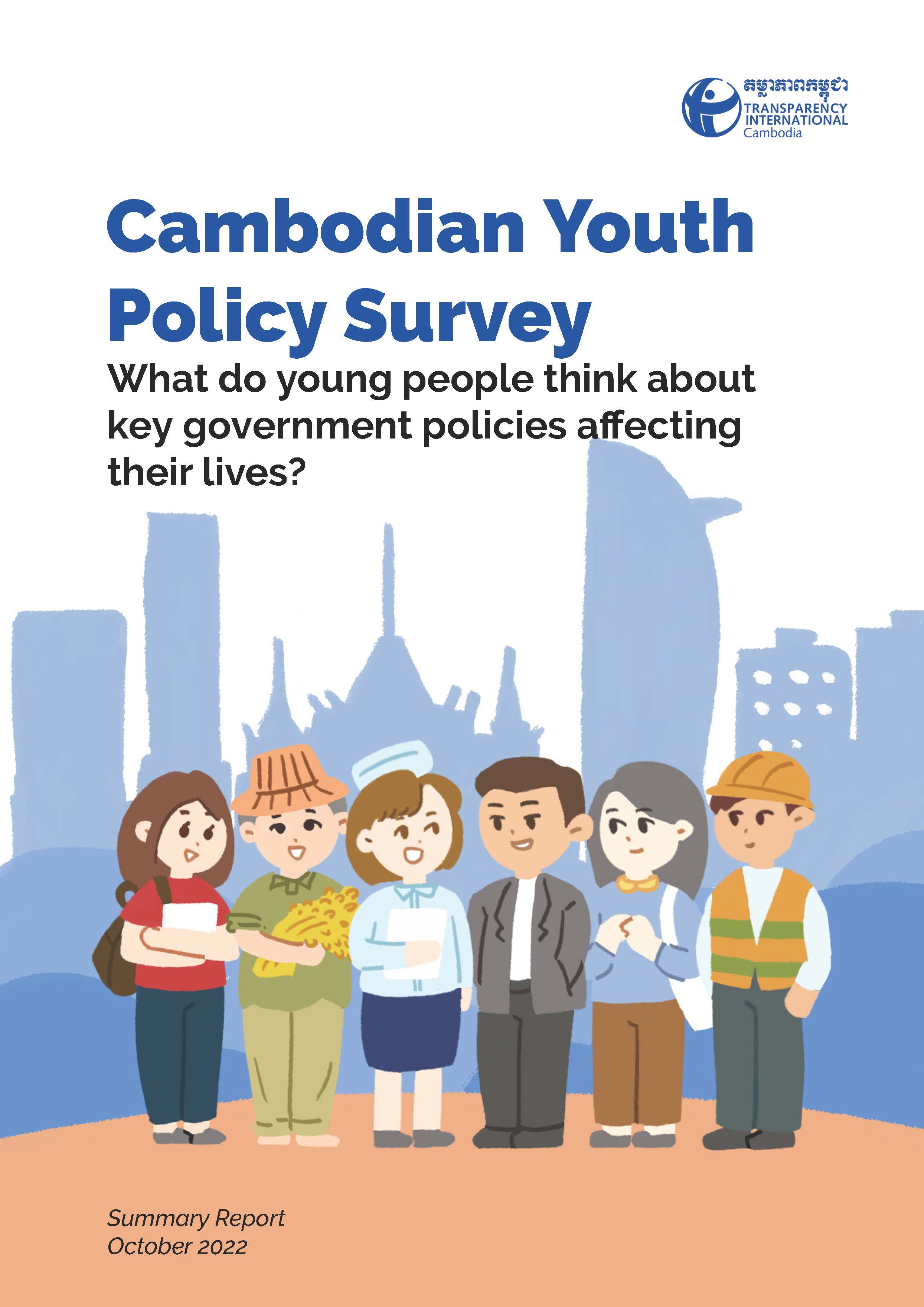
Cambodian Youth Policy Survey Report
Publication Year: 2022 / Sources: Transparency International Cambodiaការស្ទង់មតិនេះបានផ្តល់នូវការរកឃើញថ្មីៗអំពីកម្រិតនៃការចាប់អារម្មណ៍ និងចំណេះដឹងរបស់យុវជនទៅលើកិច្ចការរបស់រដ្ឋាភិបាល…
The survey offered insights into young people’s levels of interest and knowledge of government affairs, particularly key public policies, their needs and challenges in the areas of healthcare, education,…
Download: English | Khmer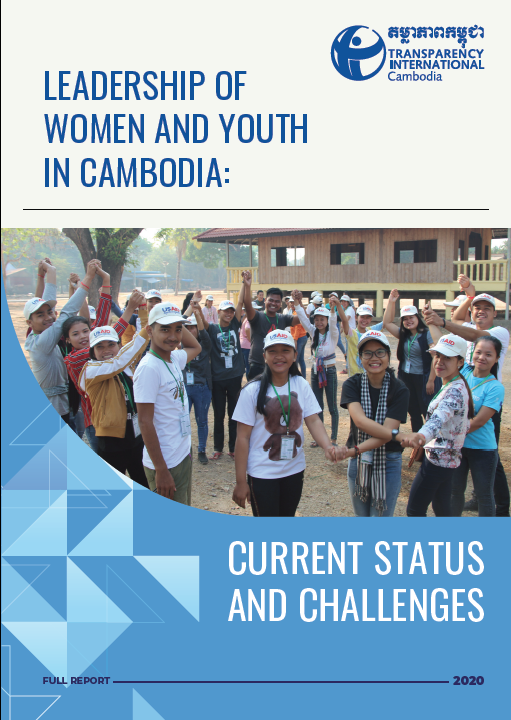
Full Report on Leadership of Women and Youth in Cambodia: Current Status and Challenges
Publication Year: 2020 / Sources: Transparency International CambodiaThis study aimed to: a) document recent trends in women and youth leadership in Cambodia, b) identify the progress and challenges in creating an enabling environment for youth and women to effectively participate in the decision-making process and c) create concrete recommendations to the Government’s institutions, Civil Society Organisations (CSOs)/ networks, and academics (schools) to effectively promote women and youth in leadership positions for the improvement of the democratic system in Cambodia.
Download: English | Khmer
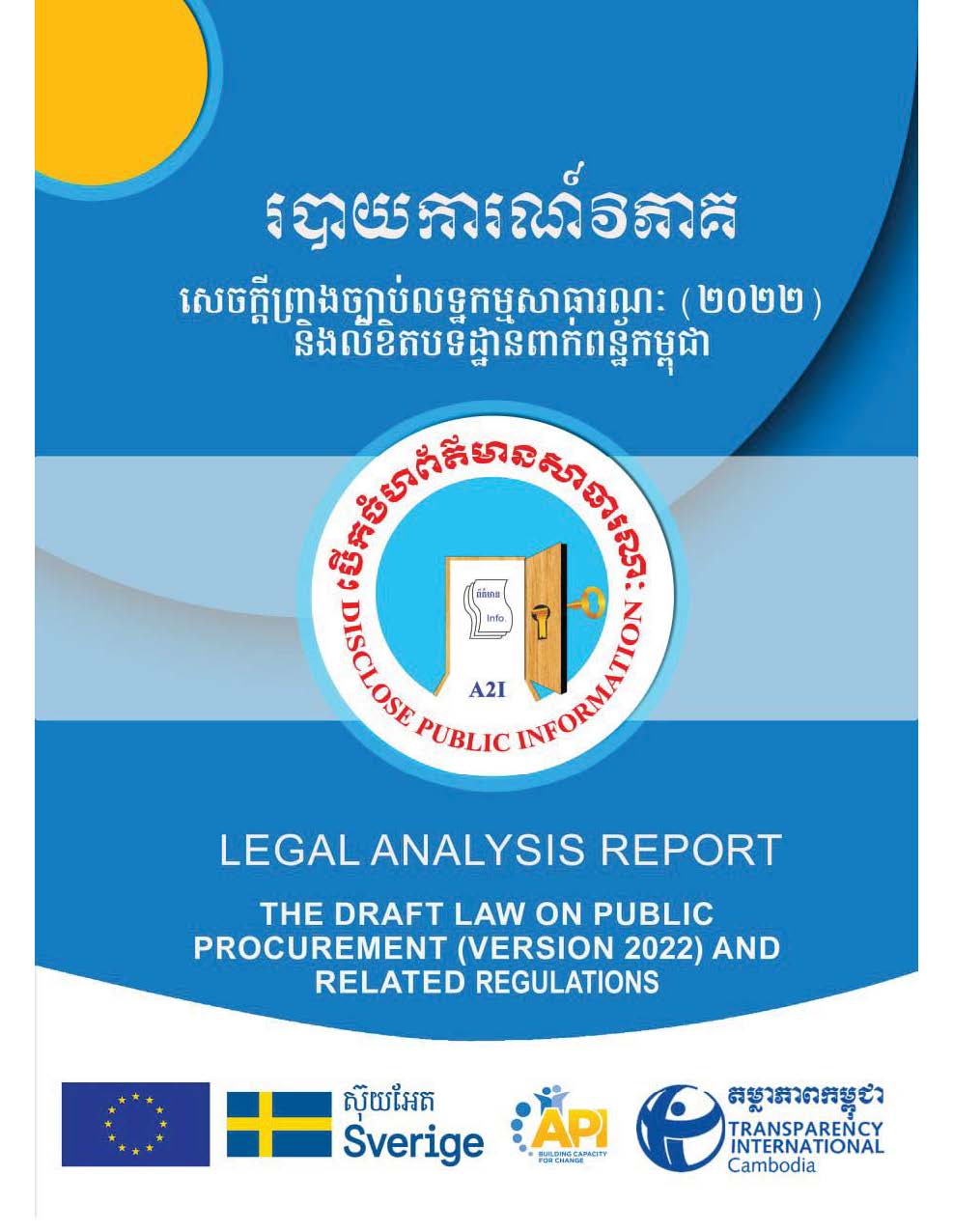
Legal Analysis Report The Draft Law on Public Procurement (version 2022) and Related Regulations
Publication Year: 2022 / Sources: Transparency International CambodiaExecutive Summary
This Report has been commissioned by Advocacy and Policy Institute (API) and Transparency
International Cambodia (TIC) to conduct a Review of Legal Framework for Public Procurement
Transparency and Its Enforcement in Cambodia. Having been chosen upon a competitive
bidding process, Sethalay Law Office has conducted a thorough desk review of the Cambodian
legal framework for Public Procurement.
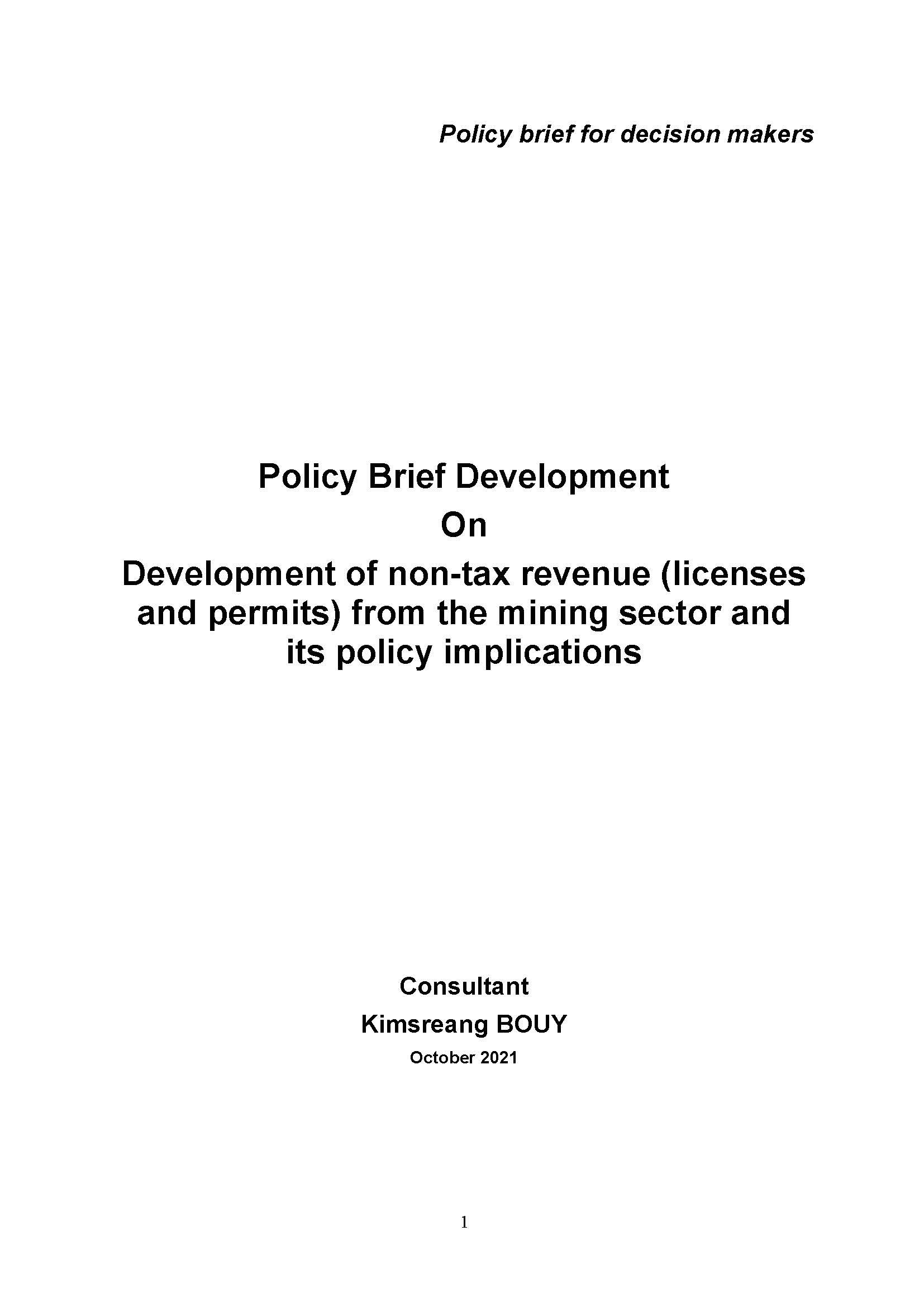
Policy Brief Development On Development of non-tax revenue (licenses and permits) from the mining sector and its policy implications
Publication Year: 2021 / Sources: Transparency International CambodiaIndigenous Peoples (IPs) in Cambodia primarily depend on natural resources for their livelihoods, such as land, forests, minerals, non-timber forest products (NTFP) and numerous other resources, including mineral resources.
Download: English | Khmer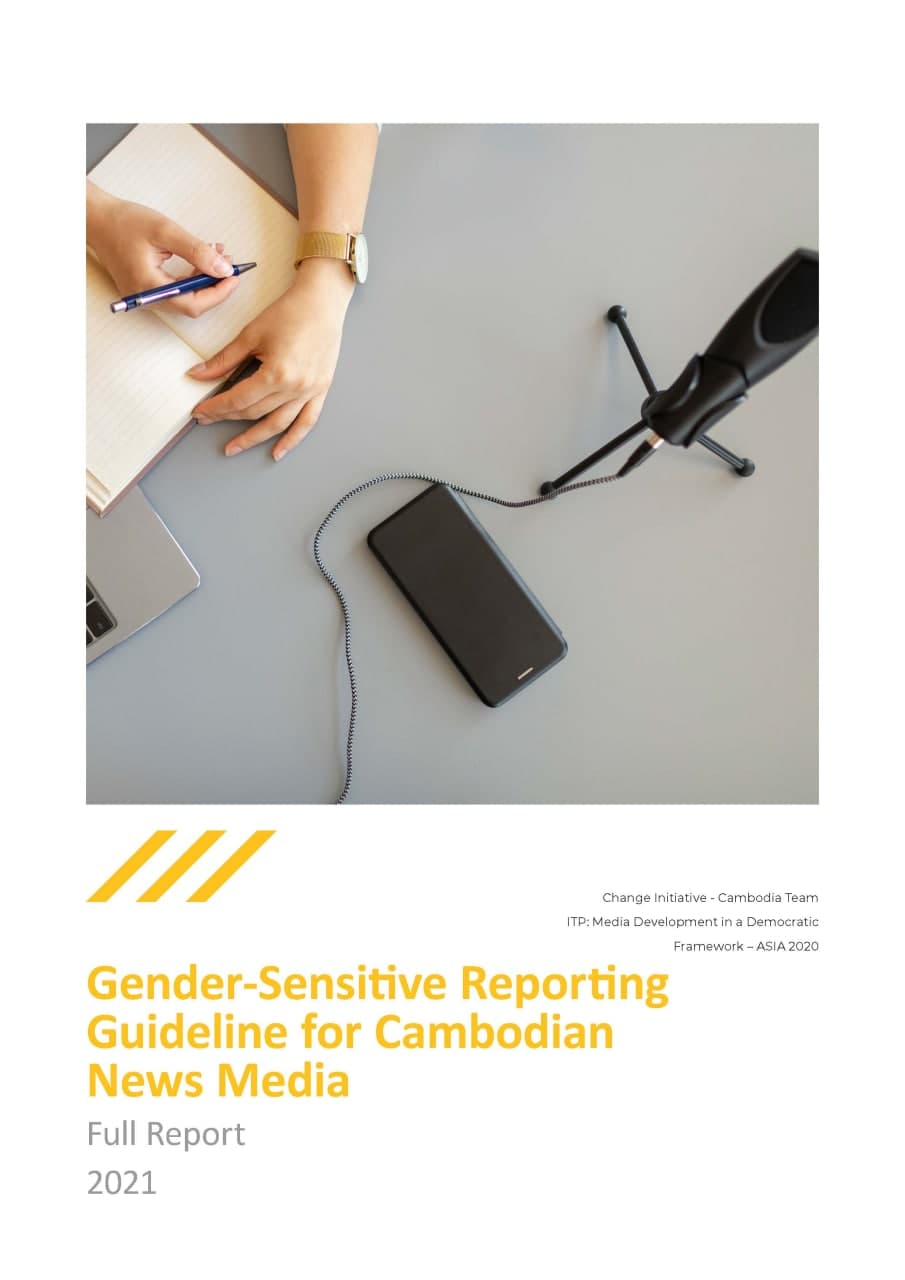
Gender-Sensitive Reporting Guideline for Cambodian News Media
Publication Year: 2021 / Sources: Transparency International CambodiaThis gender-sensitive reporting guideline has been developed to support the media in their efforts to depict the Cambodian news content in a more gender-sensitive and gender-responsive manner, thus contributing to more inclusive and equal reporting of the experiences and the needs of women, girls, boys, men and others in neglected groups.
Download: English | Khmer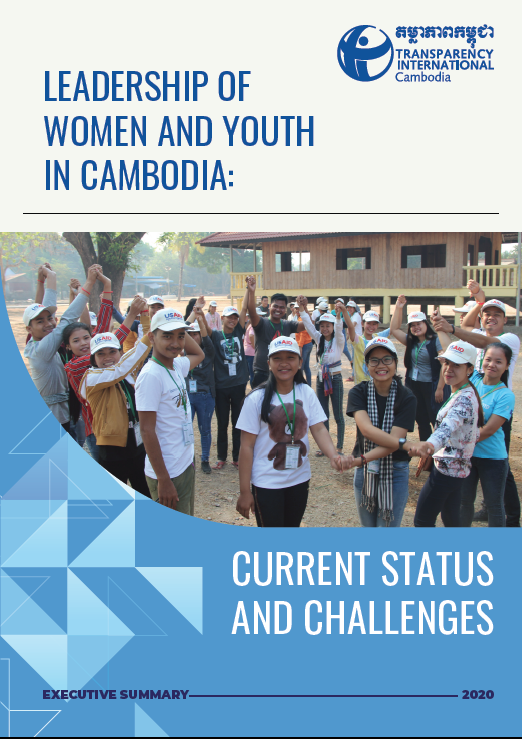
Summary report on Leadership of Women and Youth in Cambodia
Publication Year: 2020 / Sources: Transparency International CambodiaThe main objectives of the study were to:
(1) Document the recent trends in women’s and youth’s leadership in Cambodia,
(2) Identify the progress and challenges in creating an enabling environment for youth and women to effectively participate in the decision-making processes, and
(3) Create concrete recommendations for the Government, CSOs/networks, and academics (schools) to effectively promote youth and women in leadership positions for the improvement of the democratic system in Cambodia.
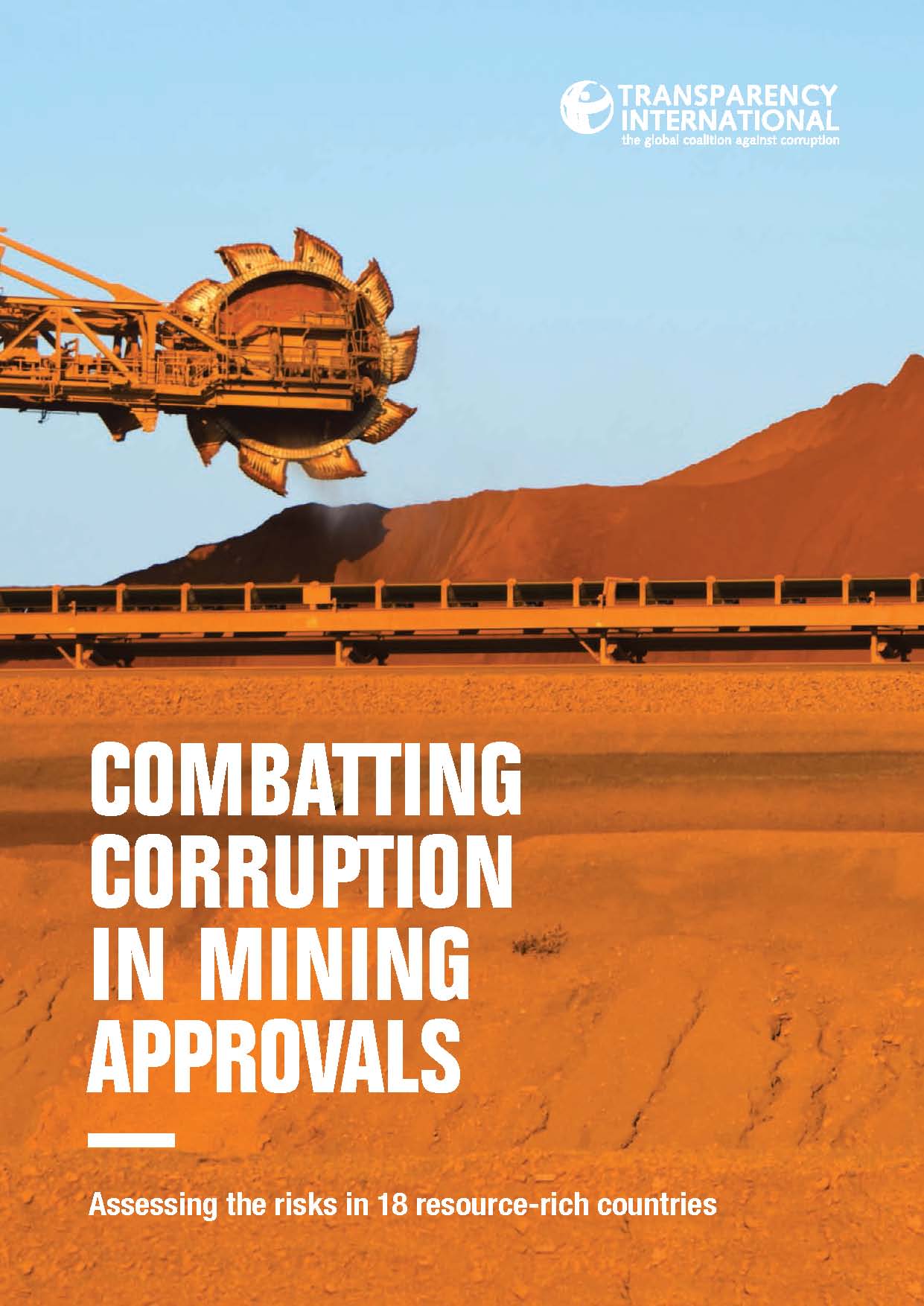
Combatting Corruption in Mining Approvals
Publication Year: 2017 / Sources: Transparency InternationalCombatting Corruption in Mining Approvals (Assessing the risks in 18 resource-rich countries)
Transparency International has assessed the risks that can lead to corruption in 18 resource-rich countries to identify the warning signals as early as possible. This report demonstrates where and how corruption can get a foothold in mining approvals processes before ground is even broken. It presents examples from a range of diverse countries and identifies important roles for government, the mining industry and civil society to identify, prevent and mitigate these risks.
Download: English | Khmer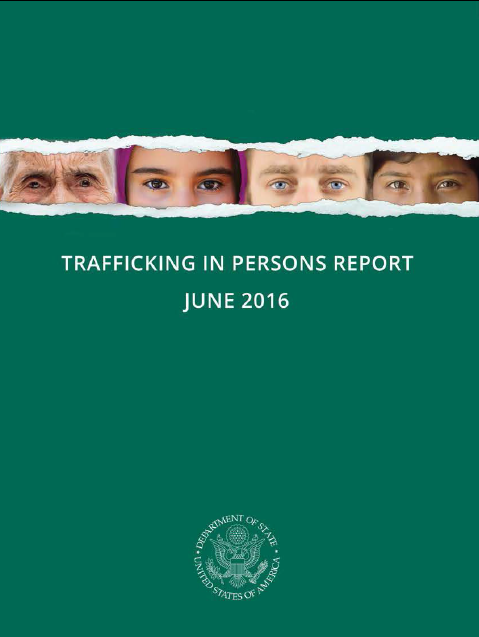
Trafficking in Persons Report 2016
Publication Year: 2016 / Sources: U.S. Department of State, Office of the Under Secretary for Civilian Security, Democracy, and Human RightsCambodia is a source, transit, and destination country for men, women, and children subjected to forced labor and sex trafficking. Cambodian adults and children migrate to other countries within the region and increasingly to the Middle East for work; many are subjected to forced labor on fishing vessels, in agriculture, in construction, in factories, and in domestic servitude—often through debt bondage—or to sex trafficking.
Download: English | Khmer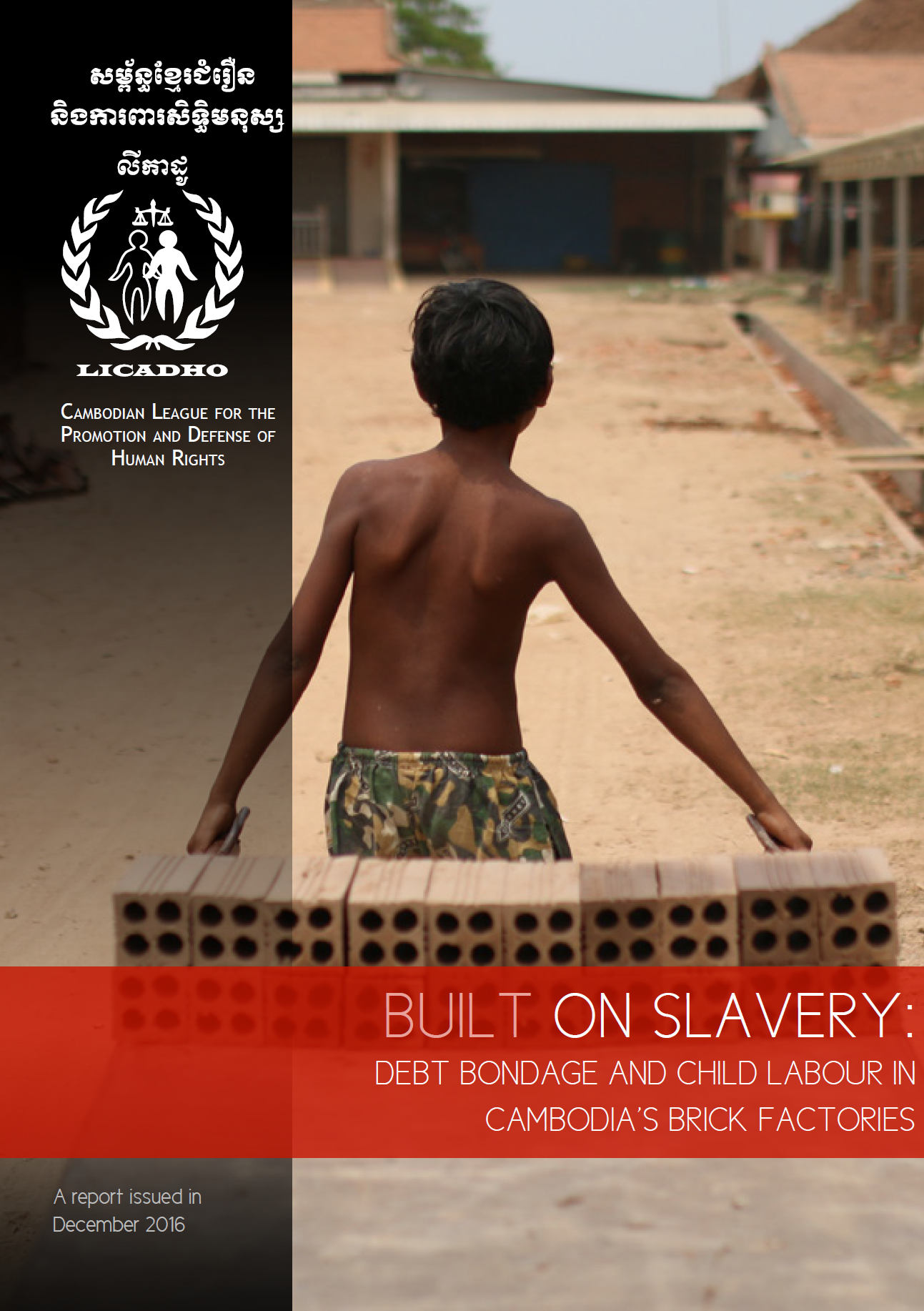
Built on Slavery: Debt Bondage and Child Labour in Cambodia’s Brick Factories
Publication Year: 2016 / Sources: Cambodian League for the Promotion and Defense of Human Rights (LICADHO)The interviews and group discussions covered a range of topics including details of the interviewees’ daily lives and their work; their financial situations and the amount of debt owed by them or their families; how they had come to brick factory work; employment practices; the use of child labour; access to education; and injuries caused by factory machinery.
Download: English | Khmer
Rule of Law Index 2015
Publication Year: 2015 / Sources: World Justice Project (WJP)The Rule of Law Index 2015 was prepared by The World Justice Project (WJP)’s research team. This research has measured on 8 factors: constraints on government powers, absence of corruption, open government, fundamental rights, order and security, regulatory enforcement, civil justice, and criminal justice. A ninth factor, informal justice, is measured but not included in aggregated scores and rankings. These factors are intended to reflect how people experience rule of law in everyday life. This WJP Rule of Law Index 2015 are derived from more than more than 100,000 household and expert surveys in 102 countries and jurisdictions. The report showed that Cambodia ranked 99 out of 102 countries and dead last in the East Asia and Pacific region.
Download: English | Khmer